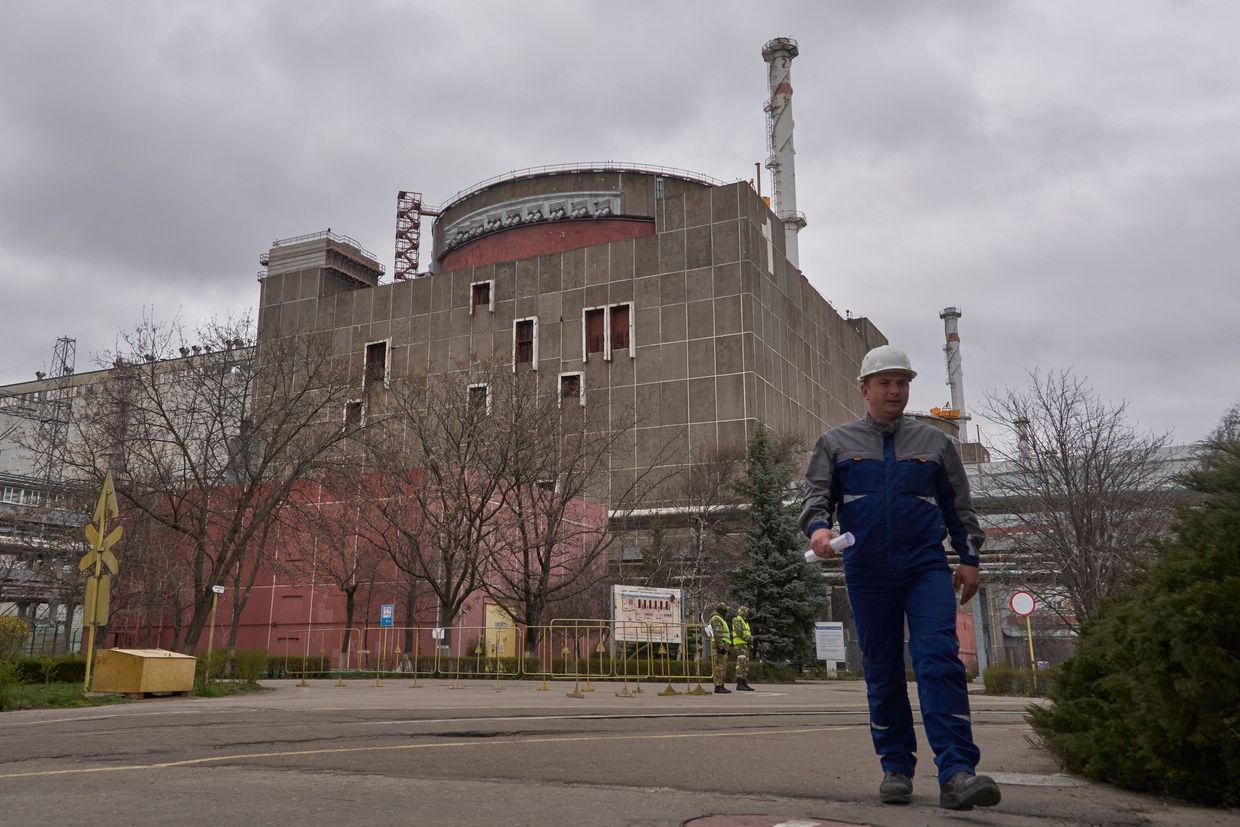Kyiv condemns attacks near occupied Zaporizhzhia nuclear plant, cut off from Ukraine's grid for 2nd week

Ukraine on Oct. 6 condemned recent attacks near the Russian-occupied Zaporizhzhia Nuclear Power Plant, as it remains disconnected from Ukraine's grid for the second week.
Russian troops reportedly struck a power line on Sept. 23, severing the plant’s connection to Ukraine’s electrical grid. As a result, the plant has been forced to rely on backup diesel generators to maintain critical safety functions and provide electricity.
As concerns about a potential crisis at the plant mount, the International Atomic Energy Agency (IAEA) said on Oct. 6 that its team heard "several rounds of incoming and outgoing shelling from near the site."
After Russian state media put the blame for the attacks on Ukraine's Armed Forces, the Ukrainian Foreign Ministry said on Oct. 6 that it was "a deliberate provocation by Russia."
The administration of the occupied plant told the IAEA that "two rounds struck 1.25 kilometers from the site perimeter." The agency warned that the attacks add to nuclear safety risks at the station, "which has had no off-site power for nearly two weeks."
An IAEA monitoring mission has been stationed at the site since September 2022, but Russian authorities have frequently restricted its access.
Russia "once again demonstrates its complete disregard for international law, the IAEA Statute, and the seven indispensable pillars of nuclear safety," the Ukrainian Foreign Ministry said in a statement.
"The deliberate creation of risks around Europe's largest nuclear power plant threatens a nuclear disaster on a continental scale."

Greenpeace nuclear expert Jan Vande Putte told the Kyiv Independent that, as of Oct. 7, the international NGO cannot independently verify the origin of the latest shelling.
The expert nevertheless said that Ukraine had not shelled the area where the 750kV line was damaged on Sept. 23.
"This means that the repeated allegations by Russia are clearly false. Greenpeace's assessment is that the cause of the damage on the 750kV line was a deliberate sabotage of the line. Russia has deliberately caused the damage, and it could also rapidly repair it," Vande Putte said.
Greenpeace Ukraine published an investigation on Oct. 1, saying that there is no evidence of any military strikes around the pylons and power line network at the plant.
"Greenpeace is concerned about the high probability that Russia would further escalate the current crisis, and one of the ways they could do that is by further causing more permanent damage to the electricity lines," Vande Putte added.
The Zaporizhzhia plant has been under Russian occupation since March 2022. Its six reactors were shut down a month after Moscow’s occupation, but the facility still requires electricity to maintain cooling and prevent a nuclear incident.
Rafael Grossi, the IAEA director general, visited Moscow on Sept. 26 to participate in Russia's World Atomic Week — which marked the 80th anniversary of Russia's nuclear industry — and met with the head of Russia's nuclear agency Rosatom.
Just days before the event, Truth Hounds and Greenpeace Ukraine published research about Rosatom's complicity in war crimes, including the detention and torture of staff at the nuclear power plant, adding to a growing risk of a nuclear disaster.












